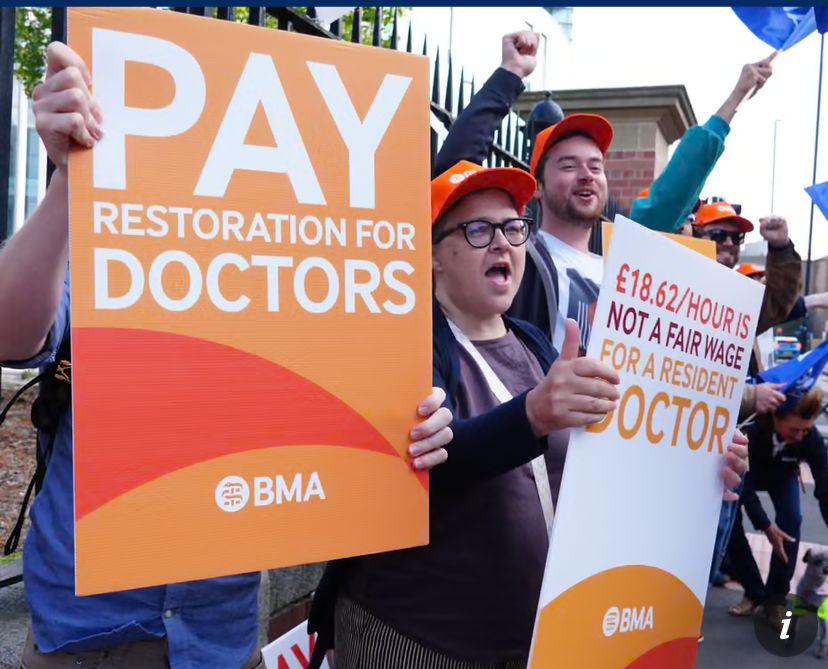Resident doctors in England will stage a five-day strike in November as tensions deepen between the British Medical Association (BMA) and the government over pay and the growing number of unemployed doctors.
The industrial action, announced by the BMA recently, will run from 7am on 14 November to 7am on 19 November, marking one of the longest walkouts so far by resident doctors, who make up roughly half of the NHS medical workforce.
The dispute centres on pay erosion and the rise in unemployment among newly qualified doctor is an issue the BMA says is worsening an already strained health system.
The chair of the BMA’s RDC, Dr. Jack Fletcher said the decision to strike was a last resort after talks with ministers failed to produce progress.
“This is not where we wanted to be,” Dr. Fletcher said. “We have spent the last week in talks with the government, pressing the health secretary to end the scandal of doctors going unemployed. Half of second-year doctors are struggling to find jobs, while millions of patients wait endlessly for treatment and hospital shifts go unfilled. This situation cannot go on.”
The BMA says the practitioners have faced steep real-terms pay cuts over the past decade and that the government refused to accept a phased deal that would gradually restore pay over several years.
The medical practitioners formerly known as junior doctors typically have up to eight years of experience in hospitals, depending on specialty, or up to three years in general practice.
The BMA argues that poor pay and lack of job security are driving many out of the NHS or abroad, exacerbating staffing shortages and lengthening waiting lists.
The government is yet to issue a detailed response to the strike announcement, but ministers are expected to face fresh pressure as winter approaches, a period when the NHS is traditionally under its greatest strain.



